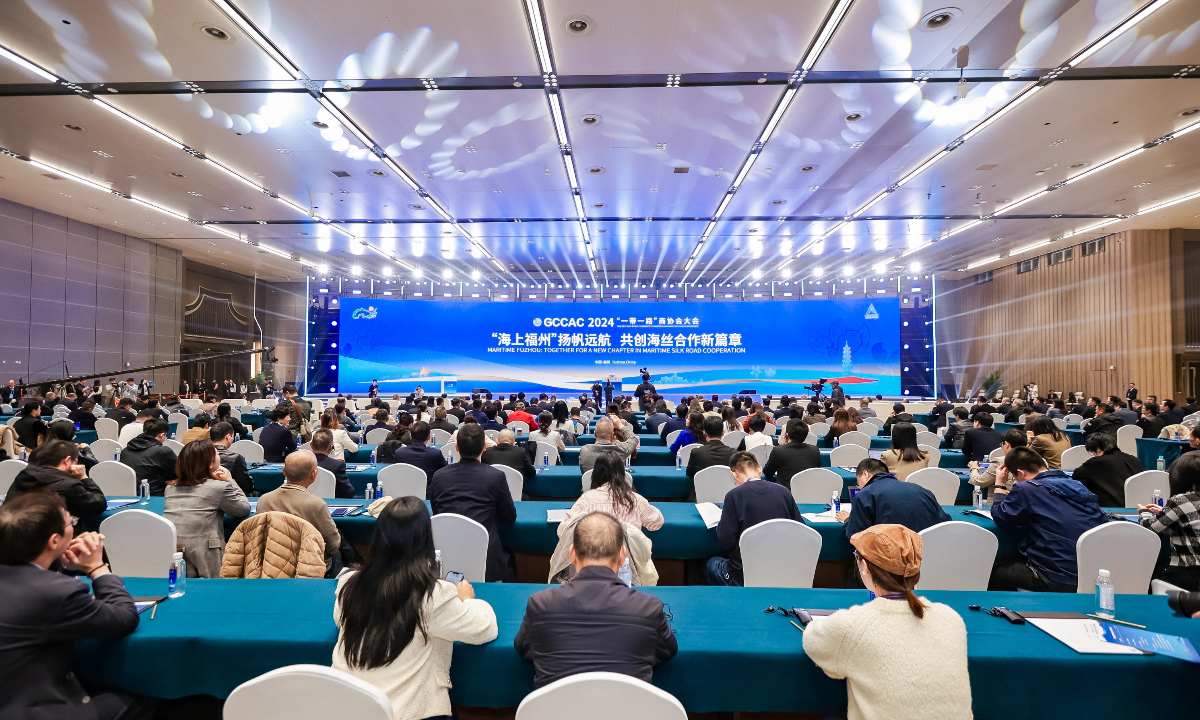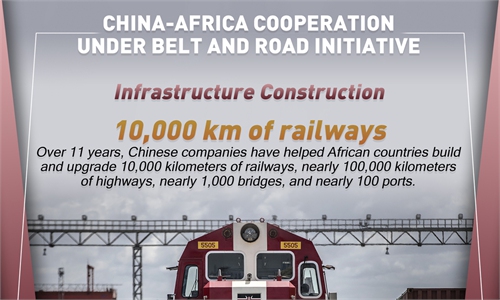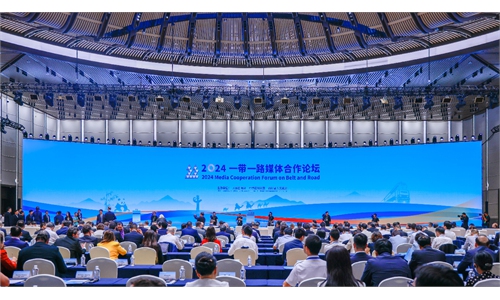Industrial associations from Chinese mainland, Hong Kong pledge concerted efforts to accelerate BRI cooperation

The 2024 Belt and Road Commerce Chambers and Associations Conference (GCCAC) kicks off on December 5, 2024 in Fuzhou, East China’s Fujian Province. Photo: Courtesy of the GCCAC
Industrial associations from the Chinese mainland and Hong Kong pledged during the 2024 Belt and Road Commerce Chambers and Associations Conference (GCCAC) to enhance BRI cooperation between Fujian Province and Hong Kong.
The GCCAC, which kicked off on Thursday in Fuzhou, East China’s Fujian, is the world’s first international cooperation and exchange platform, with chambers of commerce, industry associations, and other social organizations as the main participants.
Tam Yiu-chung, secretary-general of Hong Kong Coalition, said during the GCCAC that over the past 10 years, Hong Kong’s trade with BRI partner economies has increased by nearly 60 percent, with trade volume accounting for 43 percent of Hong Kong’s external trade.
Tam emphasized that despite global complexities, the pursuit of development and shared prosperity remains a common aspiration. The BRI has forged a growing global consensus and ushered in significant opportunities for development.
Hong Kong has a solid basis for collaboration with Fujian, with strong industrial complementarities and vast room for collaboration, Tam said.
Yue Yi, chairman of the Fujian-Hong Kong Cooperation Advisory Committee of Fuzhou New Area, said during the conference that Hong Kong can capitalize on its experience of over 100 years as a free trade port to help mainland cities and BRI partner economies to strengthen free trade and cross-border finance.
Hong Kong’s advantages in professional services such as shipping insurance, ship financing and maritime arbitration can be brought into full play to promote the development of ports, logistics and international shipping industries in Fujian and other regions, Yue noted.
Hong Kong offers deep expertise in international market conditions, industry norms and cultural traditions, and it will be easier for Chinese mainland enterprises to enter the international market through products packaged, designed and tested in Hong Kong, Yue noted.
Lo Kam-wing, president of the Chinese Manufacturers’ Association of Hong Kong, noted that from 2017 to 2022, the number of regional headquarters established in Hong Kong by BRI partner countries doubled. Hong Kong’s direct investment in the BRI partner countries increased by 71 percent to reach $120 billion by 2021.
As the international political situation has remained tense in recent years, Hong Kong businessmen are seeking to diversify their supply chain, and the BRI has provided a platform for them to capitalize on BRI infrastructure to invest in factories and expand production bases, Lo said.
Moreover, under the BRI, the economic and social development in the BRI partner countries has surged, driving new market demand. Hong Kong brands are actively seizing this opportunity to expand into consumer markets such as ASEAN and the Middle East to tap into growing opportunities, Lo noted.
Lo said that Fujian and Hong Kong can enhance financial cooperation. With its robust stock, bond and currency markets, Hong Kong can help Fujian enterprises secure more funding to bolster infrastructure, energy, tech innovation, and green transformation.
In addition, Hong Kong, as a leading green financing center in Asia, can assist Fujian enterprises in issuing bonds in Hong Kong to finance their green projects under the BRI, Lo noted.
Lum Lung-on, honorary president of the Hong Kong Chinese Importers’ & Exporters’ Association, noted that, as digital trade is rapidly emerging and become a new growth point for economic growth, Fujian and Hong Kong can strengthen construction of data centers and cloud computing infrastructure to enhance data transmission capability.
Fujian and Hong Kong can also join hands with the cities in the Guangdong-Hong Kong-Macao Greater Bay Area to ramp up digital trade standardization to facilitate the convergence with international standards, Lum noted.
Global Times


